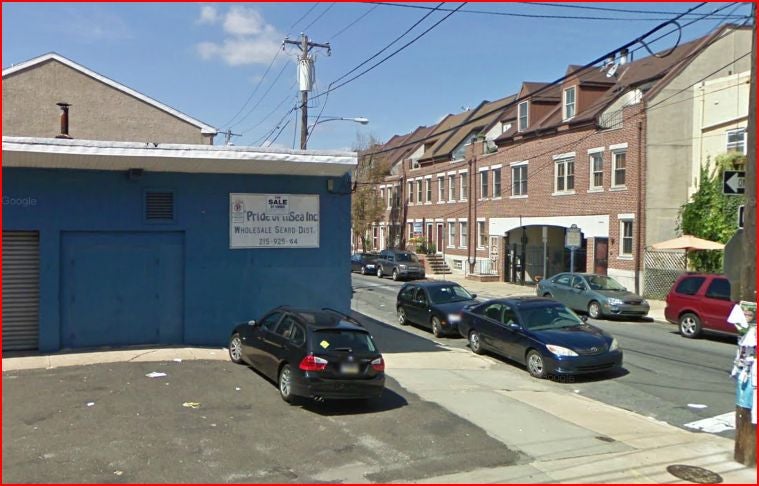Developing by right and by exception: What’s the neighborhood’s role?

At the end of last year, my esteemed predecessor Nick ran a handful of uses through the Zoning Administrative Manual for a building that was (and still is) up for sale at the corner of 4th and Brown streets in Northern Liberties. For that series of posts, Nick assumed the role of developer. He used ZAM to try to turn 720 N. 4th Street into a tattoo parlor, a gun shop, a dance club, a seafood restaurant, rowhouses and condominiums.
As a hypothetical developer, Nick’s goal was to put his building to his chosen use with as little governmental and neighborly friction as possible. His level of success varied. The tattoo parlor, allowed by right in ICMX districts like the one where Nick’s building sits, would be smoothest. The gun shop would require a special exception. Turning the site into rowhouses would require a wholesale rezoning of the property, even though the surrounding blocks largely consist of just that type of building.
Most interestingly, in my opinion, the dance club (Nick’s House of House) would require a special assembly occupancy license from L&I, but is a by-right use in the reformed zoning code.
One of the ZCC’s goals in reforming the code was to make more uses by-right, so that Philadelphians interested in developing a property for a certain use will no longer have to go through the byzantine process of exceptions and certifications currently in place.
That’s a good thing, of course. Zoning reform should clarify and streamline zoning.
But what if you’re not the developer of 720 N. 4th Street, but the neighbor? What if you object to the building on your corner being turned into a thumpin’ dance club, or a gun shop, or luxury condominiums? What does the new zoning code do for you?
In a number of circumstances, the reformed zoning code forces interaction between developers and the communities surrounding the sites they propose to develop. When a use requires a special exception, as in the case with the gun shop, the new code requires the developer to notify all registered community organizations (RCOs) in the neighborhood, and meet with them within three weeks of notification.
(To learn about registering a community organization, see section 14-303(12)(a) of the new code.)
The developer then has to send the “findings” from any community meetings to the Zoning Board of Adjustment (ZBA) at least a week before the scheduled ZBA hearing.
As Nick previously pointed out, the developer carries the burden of proof at the hearing in showing that his proposed use meets all the special exception criteria. Any objectors to the use—in this case, possibly, representatives from an RCO—must show “evidence that the proposed use is substantially likely to cause a detrimental impact exceeding that which normally might be expected from the proposed use on the health, safety, and welfare of the neighborhood.”
The code lists seven examples of detrimental impacts, one of which is “Increasing the danger of fire or otherwise endangering the public health or safety.”
So in order to block the gun shop from opening on your corner, you, as a member of an RCO, would have to show evidence that the gun shop is substantially likely to endanger the safety of your neighborhood.
Beyond needing a special exception, however, gun selling is also a regulated use. The code says that regulated uses – adult-oriented services, drug paraphernalia stores, and so on – cannot be within 500 ft. of a residential district, which our building is. So the gun shop is actually a no go. At any rate, your neighborly input is required when a developer seeks a special exception.
But what about the dance club? I’m a pretty easygoing guy, but if someone wanted to open a discotheque at the corner of my street, I would at least groan and complain about it. One of my neighbors would likely be justifiably moved to try to prevent the club from opening.
After all, one of the stated purposes of the reformed code is “Protecting the desirable characteristics of the City’s neighborhoods.” The absence of house music reverberating through the sidewalks of an otherwise quiet neighborhood could certainly be considered a desirable characteristic.
So what can be done?
The zoning code allows nightclubs in ICMX districts by right. So, registered community organization or not, the neighborhood surrounding the proposed club can’t use the zoning code to prevent it from opening. You’d have to go directly to L&I. Under Title 9 of the Philadelphia Code, a nightclub operator must have a special assembly occupancy license.
L&I considers a number of factors in deciding whether to issue such a license. Among those factors: “The suitability of the location, taking into consideration such factors as crime, traffic, litter, noise, parking and hours of operation.
In making such suitability determination, the Department shall take into account community concerns, particularly those of neighbors in the immediate vicinity, as well as the views of the Police Department.”
Again, your concerns as a neighbor are considered, though, again, it isn’t clear how much weight they carry.
Coming up: PlanPhilly talks to some community groups to get their take on who well their interests are represented.
*Note: An earlier version of this story mistakenly omitted the fact that a gun shop is a regulated use in the new zoning code. We regret the error.
Contact the reporter at jaredbrey@gmail.com
WHYY is your source for fact-based, in-depth journalism and information. As a nonprofit organization, we rely on financial support from readers like you. Please give today.



